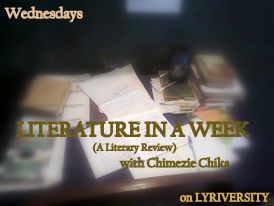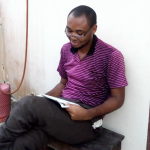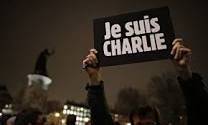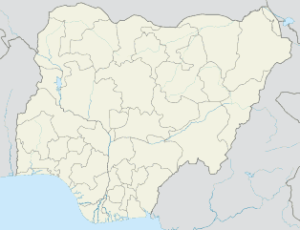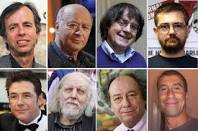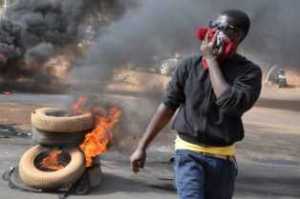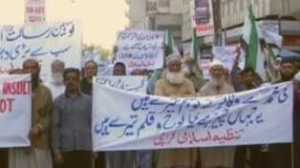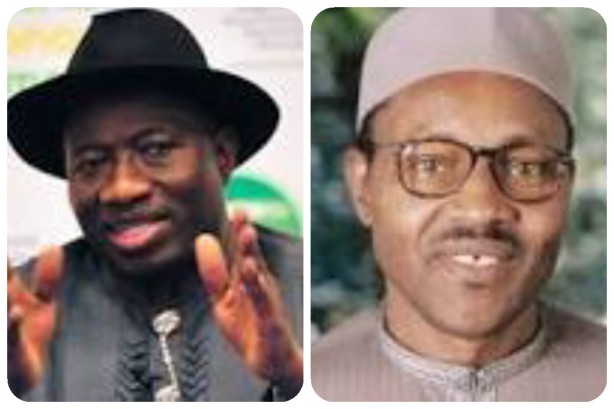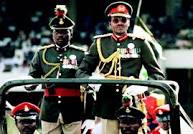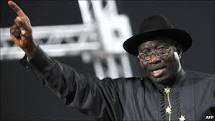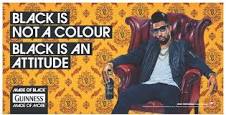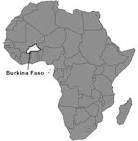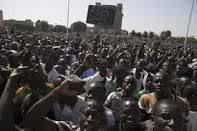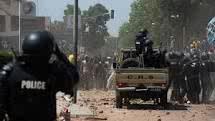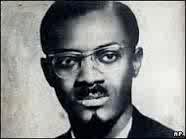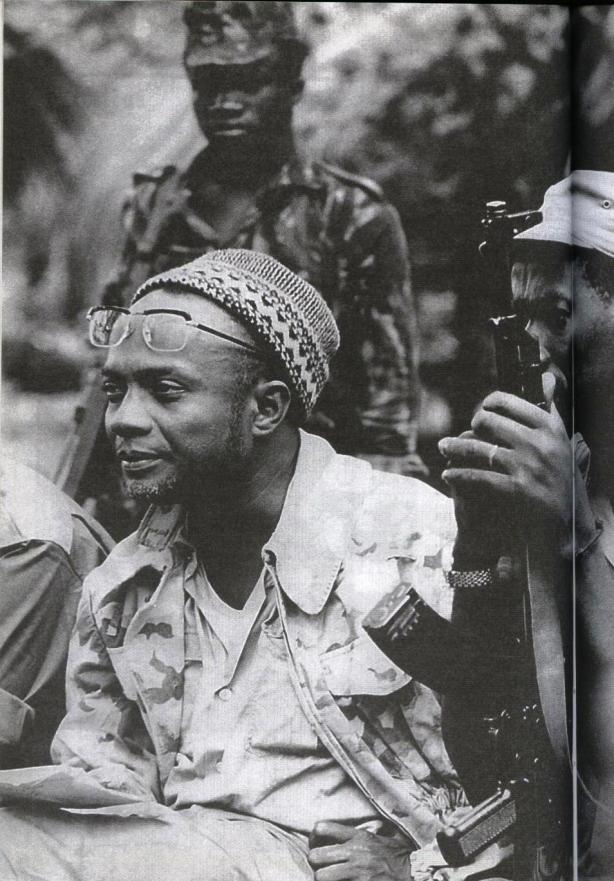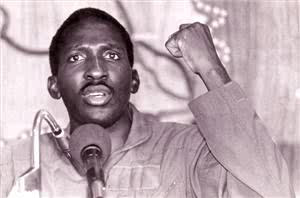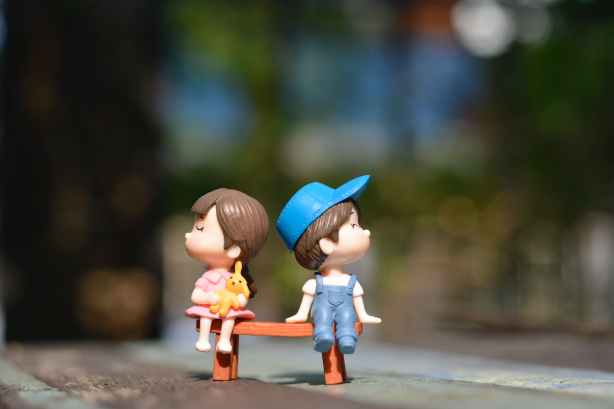
Photo by KawaiiArt1980 on Pexels.com
by Chukwudi Ezeamalukwuo Okoye
I woke up this morning thinking of Nkem –that beautiful ebony girl with sleepy eyes and seductive smile. I woke up this morning thinking of her –the way she laughed, the softness of her voice when she said OK, and the awkward manner in which we ended our conversation last night. It is not just the silence that hovers annoyingly in our chat these days that worries me. It is not just the occasional “How are you” repeated over again to make up for the lack of something concrete to say. No, not that. It is this nagging feeling that our relationship has entered into that phase where conversations become clichéd –filled with the same hollow vowels and consonants and very little passion that are insufficient to justify two hundred, a hundred, fifty or ten naira credit spent in making the telephone conversation possible.
I woke up this morning arguing with myself whether I should call her or not. Perhaps, this is what idleness does to people, having been in this state for over a year, I must confess that I am a slow learner, because I’m still figuring it out.
The time was 9: 23 am and I was just waking up, though still rolling and turning on my bed wrapped in my bedspread. The sun rays were pouring into the room like columns of hungry ant in search of food. My shirt was soaked through with sweat –there have been no electricity for two days now. I staggered to my feet and reached for my blackberry. It was off. I had switched it off last night to conserve the battery. What can a poor man in Nigeria do? I forgot about Nkem, and my thought went to my Mom. I saw her in my mind sitting under the rain with an open umbrella in her hand, selling okpa on the street. “What would she have said about situations like this?” I thought to myself. “When the desirable becomes unavailable, the available becomes the desirable.” Yes, that was what Mother usually said whenever she found herself in an unpleasant situation that she could not change –like when my father took a second wife and stopped taking care of his kids, or when she fed me and my siblings only pap for breakfast, lunch and dinner due to lack of money to make a decent meal, or when she withdrew us from private school and put us in public school. Mother was a typical Nigerian –resigned to her fate, irredeemably optimistic, always religiously hopeful that I wouldn’t be surprised if she found a way to crack a joke if faced by a firing squad. I smiled dryly at this thought, and switched on my phone. I had 35 new emails, most of them facebook notifications. I skimmed through them, and finally went to the ones with job adverts.
An hour later, and with 3 job applications sent, I went to the bathroom to brush my teeth. My thought went back to Nkem, and every emotion, every fear and feeling gradually returned accompanied by the argument –should I just call her or should I not. It was now becoming a tug-of-war –a fight between my ego and that little gentle voice. I took some water and rinsed my mouth with it. Then I spitted out the water, and I looked long at the broken mirror on the bathroom wall. “When did it come to this –debating and looking for a reason to call her?” I asked the reflection on the mirror. “This is Nkem.” I thought to myself. I could still remember the time when we had something interesting to say, when our love burnt bright, and our chats were long and intimate, full of longing and love for each other. “What happened to us?” I thought out loudly to myself as I stood there at the mirror, looking at my reflection. My eyes were still pale from sleep, and two stretch marks ran through my face. My beard was bushy and needed shaving. I ran my hand on my hair and sighed. “I need to call her. I have to call her.” I said wearily to myself.
A knock on the door just then interrupted my thought. I came out of the bathroom, and opened the door. It was my landlord’s youngest son –a boy of nine. He was standing there at my door half asleep, completely unaware of the battle going on in my mind. He must have just woken up then. His hair was untidy and so was his clothe. He was also barefooted. He always has this disarming smile, and a hopelessly naïve outlook on life even for a 9 year old. I smiled when I opened the door.
“Arinze, how are you? How may I help you?” I said to him.
“Good morning Uncle Val.” He muttered with a forced smile hanging conspicuously on his face. “My daddy wants to know if we can borrow sugar from you.”
I scratched my head. My six day old St Louis sugar was almost finished from overuse. I bought it initially for my personal consumption, but it had since become a public property, serving me and a family of six. I just couldn’t refuse to share something as cheap as a packet of sugar, or salt, or my only belt, or the occasional two hundred to one thousand naira I borrow to them which are never paid back. I left the door, went into the kitchen and brought out the packet of sugar and handed it over to him. He smiled, thanked me and ran off to their side of the house.
I went back into the kitchen, washed the dishes from yesterday, warmed the leftover foods, and put the kettle with water in it on the stove. Tea and bread –that would be my breakfast. The water boiled and I poured some into a cup with Lipton in it. I searched for the sugar and remembered after few minutes of ransacking my cupboard that I had just given it out. So I ran over to my landlord’s place to retrieve whatever was left of it.
11: 07 am. I was sitting on my bed slowly sipping my tea, and going through my phone at the same time. I noticed a status on facebook that read: “How can something so sweet, suddenly becomes stale.” It was from Nkem. The time stamp said that it was posted about 11 hours ago, which was less than an hour after our last phone conversation. Guilt and anger both swept through me.
“I should have called immediately I woke up. I should call her.” I said loudly to myself. Still I made no effort to dial her number. Instead I sat there sipping my tea. “If the relationship was becoming stale, it was also her fault.” I thought, almost smiling to myself then like I just discovered a cure for Aids, “yes she should have called me this morning too instead of posting trash on facebook.”
I finished breakfast and tidied the room. Then I made use of the toilet, showered and dressed up. I checked the time after I put on my clothes, it was 12:52 pm. NEPA as Nigerians prefer to call electricity was still unavailable. I picked up a book to read but it was hot inside the room. I opened a window, the sun rays that flooded the room were so irritating to my skin that I quickly closed it and drew the curtain. The room — stuffy — sat in uncomfortable dullness. I decided to sit outside. I picked up my phone; the battery was already almost down. “I should at least text her and see how she was doing.” I thought to myself as I paced the room, searching for the right words, and the right way to put them in order not to sound too needy and less in charge. After about ten minutes of soul searching, or to put it more aptly vocabulary searching, I typed: “Hey babe, how is your day going? Hope all is well? Do have a nice day. Love you.”
I erased the last two words, then typed them back, then erased them again. I typed “missed you” in their place. I scratched my head and thought about it. “Love you. Miss you. Love you. Miss you.” I repeated the words to myself as if saying them over and over would deliver me from the sick feeling in my mind. I looked up at the ceiling. Besides the dilapidated and worn out plywood which leaked water during the rainy season, there was nothing there for me. “Just call her.” The little voice in my mind whispered gently to me, “Just call her.” I shook my head, switched off the phone without sending the message, and stepped out for a walk.
More than three hours later, I still haven’t called or sent the text. My phone had been switched off since then, so I didn’t know if anyone tried reaching me through it or not. I had initially intended to walk around my street and back, but on stepping out, I’d bumped into an old friend. We both had a lot of catching up to do, a little more strolling, and two bottles of beer to help water the garden of our friendship. I came home at around 4:22 pm. NEPA was still unavailable. I took a shower, changed my clothes and lay down on the bed. I switched on the phone, nine emails and one text message. The text message was from Nkem, and it read, “Hey Val, how are you? Hope all is well. We seriously need to talk about everything. Hear from you soon.”
Something jacked off in my brain. The stubbornness — those walls that I built — which had prevented me from calling her all day gave way and in its place; fear. “What exactly does she mean in the text message?” I thought to myself. I stood up and started pacing the room. My mind was racing and I was also biting my tongue. I dialled her number immediately. She didn’t pick up the first time. On the second try, she answered.
“Hey My love, how are you baby.” I said as gently and as lovingly as I could.
That was when my phone battery died.
THE END



